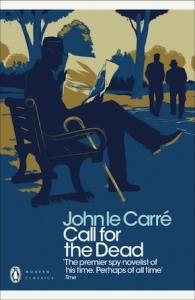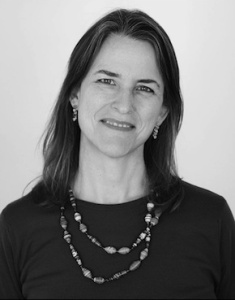The summer Smiley saved me
by Alison Jean Lester
“What a great voice, what energy and wit.” Karen Joy Fowler
In the summer of 1989, breaking up with a man I had been engaged to marry, I flew to Taipei. I didn’t have a job, but I was sure I could teach English. I didn’t have a place to live, but I had the address of a hostel with hundreds of beds. I had a degree in Mandarin; I had confidence that I would find what I needed.
My seatmate on the plane from Washington, DC via Anchorage, a Taiwanese sperm bank director, wasn’t as sure as I was that I’d sail so smoothly through the summer. “Are you sure you can stay there?” he asked me several times. He knew where the hostel was. He even drove me there. I think he wanted to come in with me to reassure himself, but I waved him off and went up the steps and at the front desk was told I could have a bed for only one night because 355 students were arriving the next day.
I dumped my suitcase in the room of empty bunks and went out into the city to the places I’d been told to look for listings of jobs and housing. I scrambled. I took a room (single bed, desk, zip-up closet) in the high-rise apartment of a pair of newlyweds. A huge photograph of them in tux and ballgown in front of a huge photograph of a waterfall covered the wall behind their bed. I found a job as a translator at a directory of Taiwanese manufacturers for less than minimum wage. I had to bring my own toilet paper, and at lunchtime they turned off the lights and everyone went to sleep.
When I woke up the first morning and Zhaoying and Hongda were eating breakfast I joined them at the little table between the tiny kitchen and the living room, and when I woke up the second morning and Zhaoying and Hongda were eating breakfast a shopping bag full of plastic bags was on the third chair. Hongda watched as his wife and I blinked a few times for our different reasons, and after that I ate out, or in my room.
When I read those books there was no le Carré, there was only Smiley, and Smiley was alive in a way he hadn’t been when I’d watched Tinker Tailor Soldier Spy on my family’s black-and-white TV.”
One night I reached for the bathroom light switch and pressed a pair of copulating cockroaches instead. One morning I reached for the honey and there was a cockroach upended like a feeding duck in the uncapped jar. I woke with a jolt at 5:30 every day when calisthenics began in the courtyard. Zhaoying got pregnant, and before she understood the truth of her condition she told me it was my fault she felt sick, because I didn’t wash the dishes properly. Wimbledon was on at night, and sometimes I watched with Hongda when Zhaoying was in bed – he and I got along fine – but Zhaoying would get out of bed and sit on the couch with her arms folded until it wasn’t fun anymore. Zhaoying’s mother came from her peach farm for a visit, always wearing her handbag across her body for safety, even in the apartment, and shouted in her sleep. After she left, Hongda was sent to sleep in the room opposite mine. On 4 June, the Chinese government perpetrated the Tiananmen Square Massacre and the TV news reports ran with a garish overlay of blood. I walked to the bus stop past dead rats, dead cats and dead bats, and at work, between translating advertisements and writing short articles about wedding gowns and breast enhancers, I cried.
 On the desk by my bed, though, I had one fat le Carré paperback after another. Buying an English-language novel cost much more than going to the movies, but I reasoned that they were cheaper minute for minute. That summer I read as many George Smiley novels as I could find. When I read those books there was no le Carré, there was only Smiley, and Smiley was alive in a way he hadn’t been when I’d watched Tinker Tailor Soldier Spy on my family’s black-and-white TV in Massachusetts in 1980, aged fourteen. Nine years later in Taiwan, Smiley was real to me, living out his life as I lived out mine.
On the desk by my bed, though, I had one fat le Carré paperback after another. Buying an English-language novel cost much more than going to the movies, but I reasoned that they were cheaper minute for minute. That summer I read as many George Smiley novels as I could find. When I read those books there was no le Carré, there was only Smiley, and Smiley was alive in a way he hadn’t been when I’d watched Tinker Tailor Soldier Spy on my family’s black-and-white TV in Massachusetts in 1980, aged fourteen. Nine years later in Taiwan, Smiley was real to me, living out his life as I lived out mine.
While I walked to work wearing a cotton face mask to protect myself from traffic pollution, quiet, plump, careful George Smiley travelled from the ‘Circus’ to safe houses, from the British countryside to East Berlin, recommending that people resist the dramatic, wrestling with the twin demons of Ends and Means, fighting for “the survival of the reasonable man”. He was beaten to within an inch of his life by a vicious former Nazi, whom he later helped turn into a double agent. He killed, with his bare hands, a man who was one of his agents as well as his friend during World War II, who had since become an East German spy. He deceived a British agent in order to deceive foreign agents, and stood on the west side of the Berlin Wall and listened helplessly as that agent allowed himself to be shot on the east side.
Smiley’s heartbreak was at the front of le Carré’s history of him, and woven into all the books.”
More memorable for me, though, was the fact that quiet, plump, careful George Smiley was heartbroken. The first chapter of Call for the Dead is entitled ‘A Brief History of George Smiley’. It doesn’t begin with his birth and upbringing, his schooling, or even his invitation to join the Secret Service. It begins with his marriage to and abandonment by the beautiful aristocrat, Lady Ann Sercomb, who didn’t cherish him, who described him to her Mayfair friends as “breathtakingly ordinary”, and counted among her many lovers a man who was eventually exposed as a Soviet mole. Smiley’s heartbreak was at the front of le Carré’s history of him, and woven into all the books.
My exceedingly resilient ex-fiancé sent me a letter to tell me that he’d started dating again, because he thought it would make me feel better about cancelling our wedding. Meanwhile, in Smiley’s world, the brilliant secret agent had to listen to people at cocktail parties who didn’t know him talk about Lady Ann and her unsuitable marriage. He worked at one of the world’s most difficult jobs; I worked at one of the most ridiculous. We went home to our empty beds. I lay on mine, took a Valium to help me rest, and caught up with Smiley, who knew “what it was never to sleep, never to relax, to feel at any time of day or night the restless beating of his own heart.”
Thankfully he was always much, much sadder than I was.
 Alison Jean Lester was born to an American father and a British mother, and educated in the US, the UK, China and Italy. She spent twenty-five years working, writing and raising her children in Japan and Singapore before relocating to the UK in 2016. She is the author of the novels Lillian on Life and Yuki Means Happiness – out now in hardback and eBook from John Murray.
Alison Jean Lester was born to an American father and a British mother, and educated in the US, the UK, China and Italy. She spent twenty-five years working, writing and raising her children in Japan and Singapore before relocating to the UK in 2016. She is the author of the novels Lillian on Life and Yuki Means Happiness – out now in hardback and eBook from John Murray.
Read more
alisonjeanlester.com
@A_J_Lester
Author portrait © Andrew Gurnett

